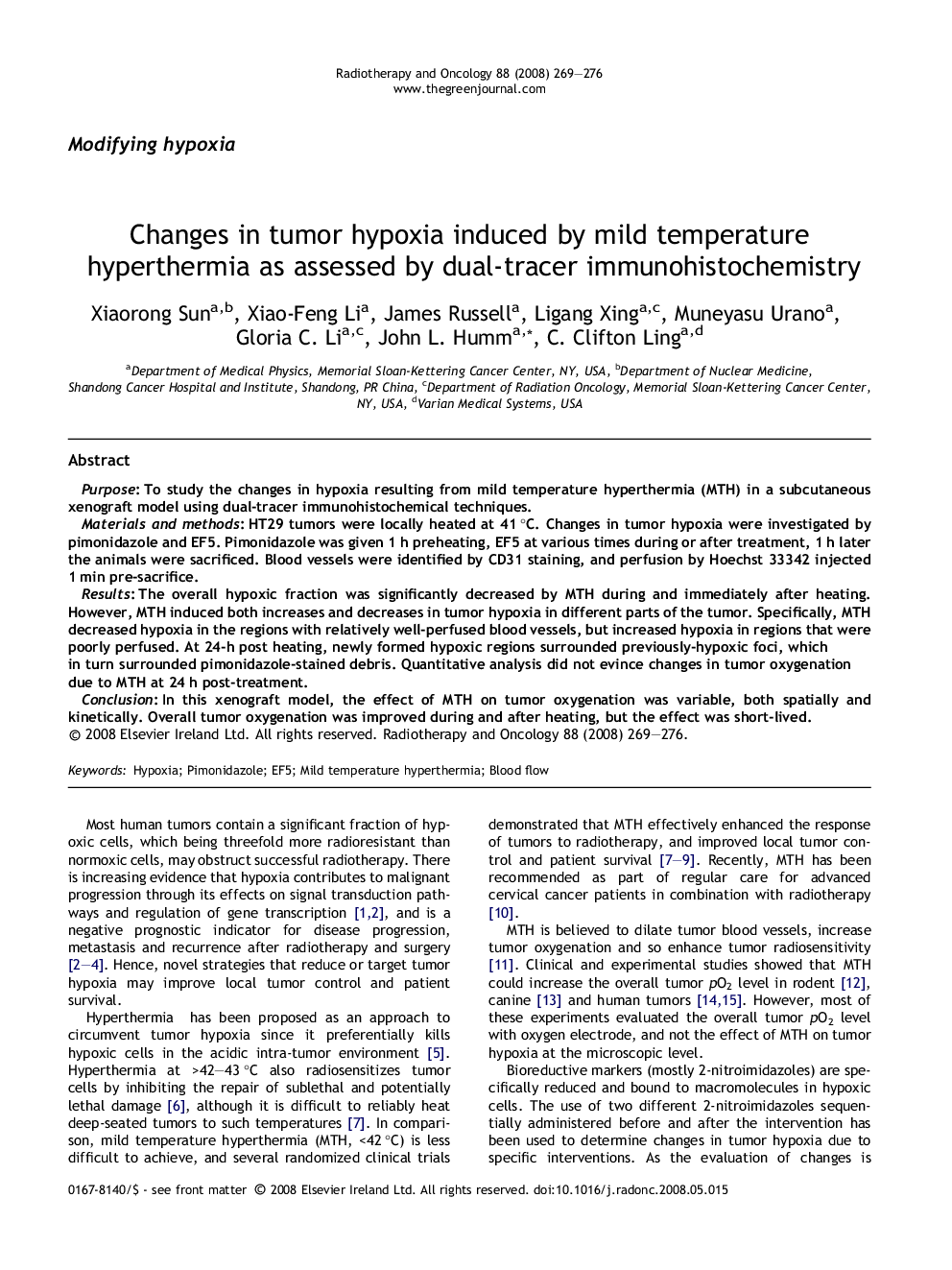| کد مقاله | کد نشریه | سال انتشار | مقاله انگلیسی | نسخه تمام متن |
|---|---|---|---|---|
| 2160203 | 1090875 | 2008 | 8 صفحه PDF | دانلود رایگان |

PurposeTo study the changes in hypoxia resulting from mild temperature hyperthermia (MTH) in a subcutaneous xenograft model using dual-tracer immunohistochemical techniques.Materials and methodsHT29 tumors were locally heated at 41 °C. Changes in tumor hypoxia were investigated by pimonidazole and EF5. Pimonidazole was given 1 h preheating, EF5 at various times during or after treatment, 1 h later the animals were sacrificed. Blood vessels were identified by CD31 staining, and perfusion by Hoechst 33342 injected 1 min pre-sacrifice.ResultsThe overall hypoxic fraction was significantly decreased by MTH during and immediately after heating. However, MTH induced both increases and decreases in tumor hypoxia in different parts of the tumor. Specifically, MTH decreased hypoxia in the regions with relatively well-perfused blood vessels, but increased hypoxia in regions that were poorly perfused. At 24-h post heating, newly formed hypoxic regions surrounded previously-hypoxic foci, which in turn surrounded pimonidazole-stained debris. Quantitative analysis did not evince changes in tumor oxygenation due to MTH at 24 h post-treatment.ConclusionIn this xenograft model, the effect of MTH on tumor oxygenation was variable, both spatially and kinetically. Overall tumor oxygenation was improved during and after heating, but the effect was short-lived.
Journal: Radiotherapy and Oncology - Volume 88, Issue 2, August 2008, Pages 269–276